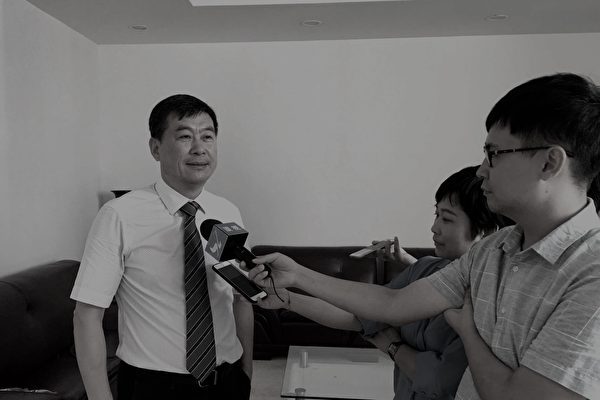A Chinese organ transplant expert was barred from participating in the annual China-Israel Innovation and Investment Summit, following reports that he may be involved with the crime of murdering prisoners of conscience for their organs.
The high-profile summit has been held for the last six years. In attendance are Chinese diplomatic officers stationed in Israel, as well as experts and entrepreneurs from both countries specializing in fields such as artificial intelligence and life science. This year, the conference was held between Nov. 18 and Nov. 20 in Haifa, Israel’s third-largest city.
Dong Jiahong is the executive president of a hospital affiliated with Tsinghua University in Beijing, and former head of the Chinese People’s Liberation Army (PLA) 301 Hospital. He is a specialist in hepatic surgery and liver transplants.
Since 2006, human rights investigators have accused China’s communist authorities of widespread and systematic organ harvesting from ordinary citizens imprisoned for their beliefs — chiefly practitioners of the spiritual practice Falun Gong, which has been banned and persecuted in China since 1999.
According to the investigations, the PLA, Chinese paramilitary police, and hospitals throughout the country, are complicit in the profitable enterprise. Minghui.org, a clearinghouse website that documents the anti-Falun Gong persecution, notes that “because of the nationwide policy against Falun Gong, there were no repercussions for those involved in organ harvesting crimes.”
Success
You are now signed up for our newsletter
Success
Check your email to complete sign up
According to Bloody Harvest: Organ Harvesting of Falun Gong Practitioners in China (Revised report) by Canadian human rights researchers David Kilgour and David Matas, foreign customers paid US$30,000 for cornea transplants and US$180,000 for combined transplants of kidneys and livers.

According to ‘Bloody Harvest: Organ Harvesting of Falun Gong Practitioners in China (Revised report)’ by Canadian human rights researchers David Kilgour and David Matas, foreign customers paid US$30,000 for cornea transplants and US$180,000 for combined transplants of kidneys and livers. (Image: Screenshot / YouTube)
To ensure that transplant operations are successful and can be scheduled when customers need treatment, prisoners are often still alive when their organs are harvested. In order to avoid contaminating the organs, surgeons carrying out the operations forgo anesthetics.
Dong Jiahong had been invited to join the China-Israel Innovation and Investment Summit as a medical expert, but the Haifa Economic Cooperation (HEC) withdrew the invitation following pressure from the International Coalition to End Transplant Abuse in China (ICETAC) and other groups.
The 301 Hospital that Dong once headed, also known as the PLA General Hospital, is located in Beijing and specializes in treating Chinese Communist Party (CCP) officials and other important individuals. It is a designated institution for liver and kidney transplants, and highly suspected of being involved with organ harvesting from Falun Gong practitioners and other prisoners of conscience.
Dong is listed by the World Organization to Investigate the Persecution of Falun Gong (WOIPFG) as a likely participant in organ harvesting. Between February 1999 and February 2007, he took part in 407 liver extractions from people officially claimed to be donors at a PLA medical hospital.
Many hospitals across China have each conducted hundreds or thousands of transplant operations over a timeframe beginning roughly around or after former CCP leader Jiang Zemin ordered the political campaign against Falun Gong.

Chinese plainclothes police in Tiananmen Square stamping on the face of a man for protesting the communist regime’s persecution of the Falun Gong spiritual practice. (Image: Minghui.org)
The Chinese government has refuted all allegations of organ harvesting from prisoners of conscience, and since 2015 says that it stopped harvesting the organs of executed death row convicts. It attributes the rising numbers of transplants to an improved organ donation system, but independent scrutiny has cast doubt on these claims.
The 2018 annual report of the 2018 Congressional Executive Commission on China (CECC) expressed concerns over reports that “numerous organ transplants in China have used the organs of detained prisoners, including Falun Gong practitioners.”
In June 2016, the U.S. House of Representatives unanimously passed its House Resolution 343 (H. Res.343) expressing concern about organ procurement from non-consenting donors in China, including “large numbers of Falun Gong practitioners and members of other religious and ethnic minority groups.”
The Chinese government, H. Res.343 notes, continues to “deny reports that many organs are taken without the consent of prisoners, yet, at the same time, it prevents independent verification of its transplant system” and denies that “the organ transplantation system in China does not comply with the World Health Organization’s requirement of transparency and traceability when it comes to organ procurement pathways.”
As described by Minghui, “thousands of investigative phone calls conducted by WOIPFG revealed that forced organ harvesting was launched on the direct order of Jiang Zemin. Jiang is responsible for the direction to ‘militarize and commercialize’ the business of killing Falun Gong practitioners for their organs.”
According to investigations, the PLA General Logistics Department was the main organization responsible for organ harvesting, and was in charge of the management and allocation of “donors.” Most organ harvesting is believed to be carried out in PLA and military police hospitals.
Follow us on Twitter or subscribe to our weekly email














